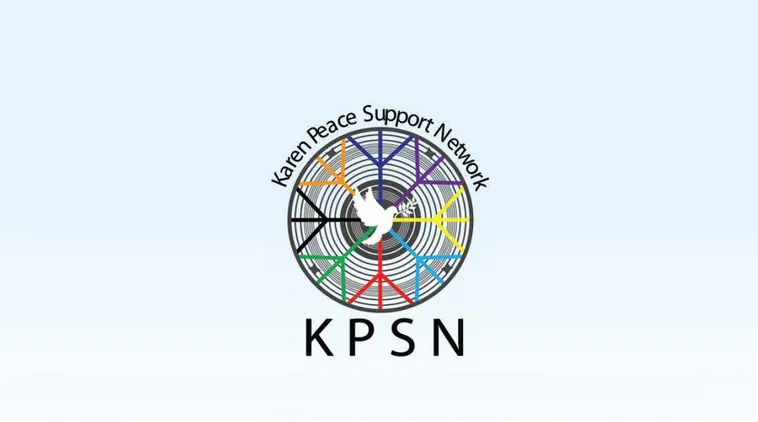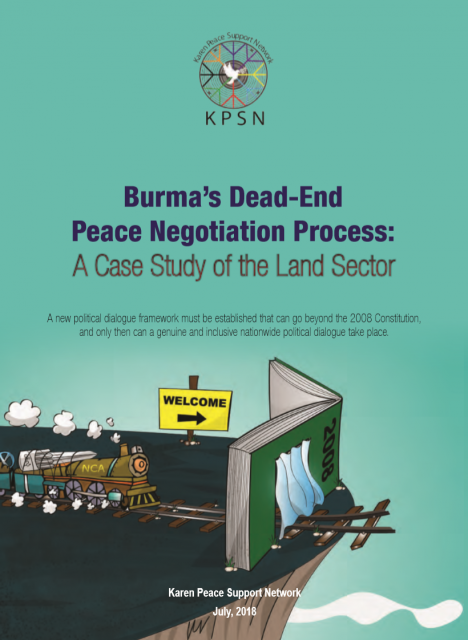Burma’s Dead-End Peace Negotiation Process: A Case Study of the Land Sector
05 July 2018

Executive Summary
It became undeniably clear that Burma’s peace negotiation process would not result in the establishment of “a new democratic federal union” following the second 21st Century Panglong Conference (21CPC), held in May 2017. The objective of the 2nd 21CPC was to create a forum where representatives of the Burma Army, also known as the Tatmadaw, Ethnic Armed Organisations (EAOs), political parties, government, parliament and other stakeholders could negotiate a set of principles to guide the formation of a democratic federal union.
This briefer analyses the peace negotiation process using dialogue over land management powers as a case study, by tracing original demands and negotiations related to land from the Karen ethnic-level national political dialogues held in January 2017 up to the 21CPC in May 2017. The land policy principles “agreed” during the 2nd 21CPC contradict the recommendations developed through Karen national-level political dialogues, which clearly called for local ownership and state land management powers. Building on the 2008 Constitution, the Burma Army is clearly using the peace negotiation process to further entrench military rule and expand their control into ethnic areas. Since in office, the National League for Democracy (NLD) has reneged on a number of its core election pledges, leading to growing concerns among civil society that the NLD’s decision making is being increasingly influenced/determined by the Burma Army, facilitating the further centralisation of power. The Myanmar government and the Burma Army continue to call on the country’s Ethnic Armed Organisations (EAOs) to sign the Nationwide Ceasefire Agreement (NCA), yet simultaneously the Tatmadaw and its proxy forces are engaged in multiple coordinated offensives against those very same EAOs in Kachin, Karen and Shan States.
The control, management and ownership of land is a major issue within the peace negotiation process. The military-penned 2008 Constitution and existing laws provide the state with absolute power and authority over land and natural resources. This continued centralisation of powers with the union government is unacceptable to ethnic organisations as it represents the primary cause of conflict. However, the Burma Army has imposed these fundamentally undemocratic powers through the commander-in-chief’s “six-point policy” for the peace negotiation process which demands all EAOs “strictly abide by the existing laws…in accordance with the 2008 Constitution.” Land tenure and resource access are also tied to opportunities for peace, as they are at the centre of all ethnic groups’ longstanding struggles to secure equal rights and self-determination. Ethnic political parties and ethnic armed organisations (EAOs) have institutionalised devolved systems of land and natural resource management within their administrative areas. As a case in point, the Karen National Union (KNU), in its own administered areas, has institutionalised land and forest policies, based on federal principles which recognise customary systems of land and natural resource management.4 Representatives of the KNU and Karen civil society organizations (CSOs) have carried these policies forward to the peace negotiation process, advocating for recognition and respect for these fundamental rights within the framework of a future democratic federal union.
Our findings show that the peace negotiation process is restricted by the 2008 Constitution and any proposals suggested outside these limits are simply blocked by the military while the NLD remains largely silent in this process and does not act on its own election manifesto to establish a federal democratic union. Therefore, this process has effectively come to a dead-end. KPSN argues that a comprehensive and genuine revision of the flawed process must be made, and a new framework established that replaces the military penned 2008 constitution. Only then can a genuine, inclusive and acceptable nationwide political dialogue take place.
Download full report in English language HERE.
Download full report in Burmese language HERE.
၎
င
၎
၎
Announcements
28 February 2025
Asian NGO Network on National Human Rights Institutions , CSO Working Group on Independent National Human Rights Institution (Burma/Myanmar)
Open letter: Removal of the membership of the dis-accredited Myanmar National Human Rights Commission from the Southeast Asia National Human Rights Institution Forum

Progressive Voice is a participatory rights-based policy research and advocacy organization rooted in civil society, that maintains strong networks and relationships with grassroots organizations and community-based organizations throughout Myanmar. It acts as a bridge to the international community and international policymakers by amplifying voices from the ground, and advocating for a rights-based policy narrative.
